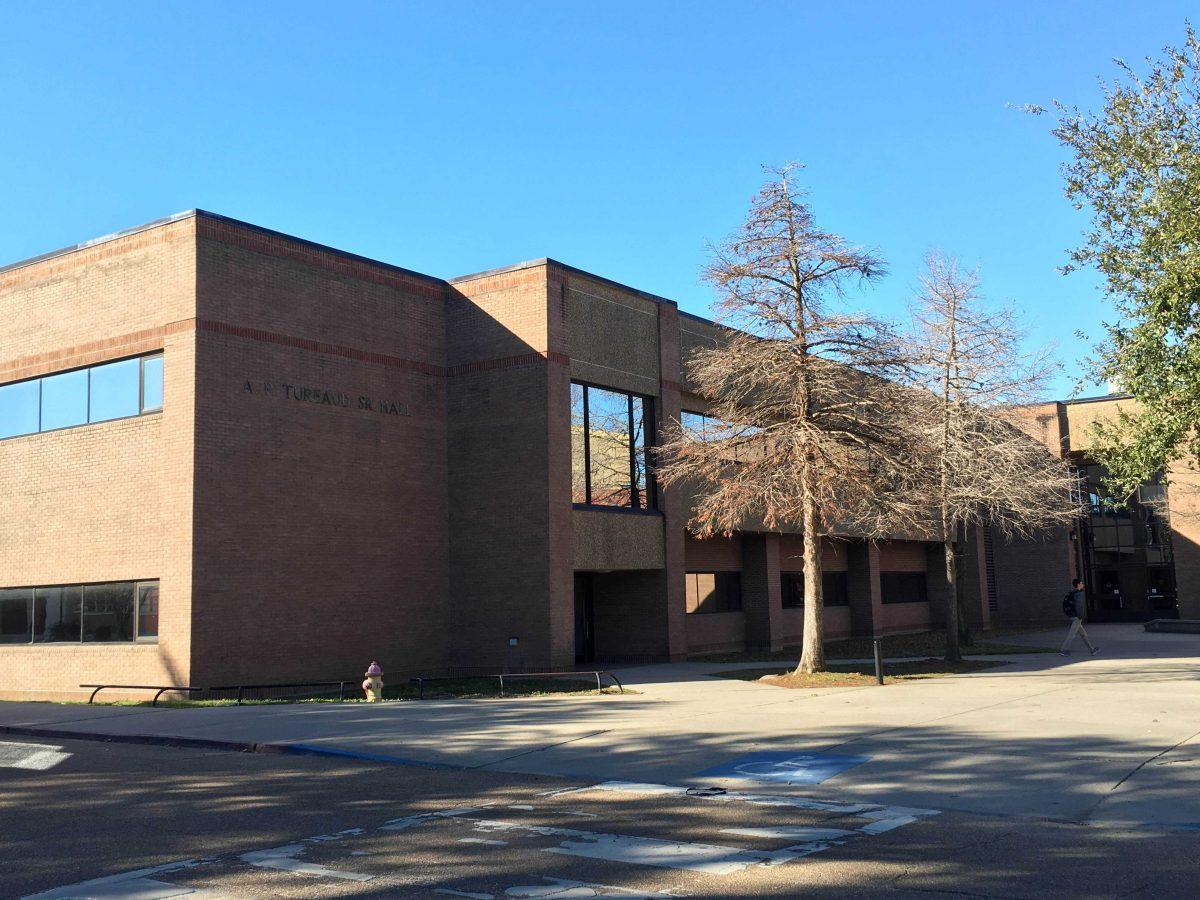In September 1953, Alexander Pierre Tureaud Jr., known as “A.P.,” began his college career at LSU as the first black undergraduate student. Meanwhile, Clare Coss was traveling from New York, also ready to start her freshman year in Baton Rouge.
Coss experienced a huge culture shock when she first stepped on the University’s campus. While she was aware of Jim Crow laws and the often normalized racist behaviors in the South, she couldn’t understand the vitriol around Tureaud’s time at the University.
“There just seemed to be nobody who thought it was a good idea for A.P. to be integrating LSU undergraduate,” Coss said. “I mean just nobody.”
Two years prior to Tureaud’s arrival, the University’s graduate programs were already beginning to integrate. Coss said these students also faced backlash simply for being black students enrolled at the University.
“A pregnant black woman was told she was giving birth to a gorilla,” Coss said. “Just terrible things being said to this handful of graduate students.”
Because of the precedent set by the black graduate students already enrolled at the University, Tureaud didn’t think his choice would be so controversial.
“I didn’t go there to be a test case,” Tureaud said in an interview with The Reveille. “I thought it would die down in a couple days because there were graduate students integrating already.”
Tureaud’s father, Alexander Pierre Tureaud Sr., sued the state for his son to attend the University. Since Tureaud Sr.’s lawsuit ended in a mistrial, Tureaud spent only 55 days as a student at the University.
However, the discrimination Tureaud experienced during those 55 days was on another level. Tureaud not only faced racial discrimination from his peers, but from administrators as well. At times, it seemed like he was the sole focal point for the LSU community’s intense opposition toward desegregation.
“The professors wouldn’t recognize me; if I raised my hand, they wouldn’t call on me. If I sat at one place in the room, students would move their chairs as far away from me as they could,” Tureaud said. “I thought the adults would at least do what they were paid to do, which is to teach and be objective. I wasn’t expecting them to be as verbally prejudiced as they were.”
According to Tureaud, even the University’s president, Troy H. Middleton, “fought as hard as he could to keep me out of there.” The University’s central library, Middleton Library, is still named in his honor.
His male peers living on his residence hall floor would frequently torment him, banging on the walls at night and throwing roadkill in front of his door, Turead said.
“People were so determined to get me out of there,” Tureaud said. “If you’re banging on the walls at night, you’re not sleeping either.”
Meanwhile, Coss was attending classes and bonding with her Kappa Kappa Gamma sisters but was horrified by the way her peers treated Tureaud. She was especially affected by The Daily Reveille’s discriminatory coverage of Tureaud.
According to Tureaud, The Daily Reveille frequently published hateful and degrading letters about him from students. Tureaud also remembers a time in a physical education class when, as he entered the swimming pool, all other students immediately exited. The next day, The Daily Reveille detailed the draining and refilling of the pool with fresh water.
Coss was so shocked by the University’s treatment of Tureaud that she wrote a letter to The Daily Reveille expressing her feelings, but she was too afraid to publish it, at the time.
“I was really afraid to mail the letter because I was totally isolated. Nobody, no ally,” Coss said. “I would be breaking the silence in a way that would not be acceptable to my sorority sisters, everyone really. I felt like it would end up in me having to leave LSU.”
It wasn’t until 66 years later that she decided to send her original letter to The Reveille and to reach out to Tureaud regarding his time at the University. According to Coss, no students, faculty or administration ever broke the silence regarding Tureaud’s treatment.
In 1896, the U.S. Supreme Court decided in Plessy v. Ferguson that racial segregation in public facilities, including schools, should be upheld as long as the facilities were considered to be of equal quality.
These conditions lasted until 1954, when the unanimous Supreme Court decision, Brown v. Board of Education, ruled that separate educational facilities are inherently unequal.
This decision was made just one year after Tureaud’s brief time at the University.
Coss felt her time at the University helped radicalize and transform her into the activist she is today, for which she is thankful. However, she regrets not sending her letter to The Daily Reveille while she and Tureaud were enrolled at the University.
“Being silent, with all of this stirring around inside me, it was a potent mix,” Coss said. “I knew what was happening was wrong and I didn’t speak up, so I felt like I was part of the problem.”
University’s unfair treatment of A.P. Tureaud Jr. revisted after LSU alumna sends 66-year-old letter to the editor
September 9, 2019





